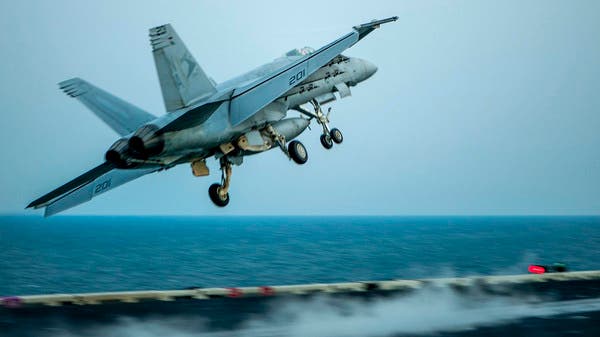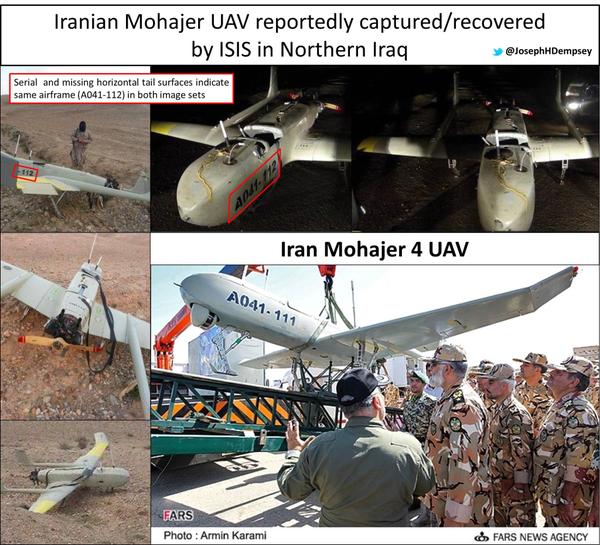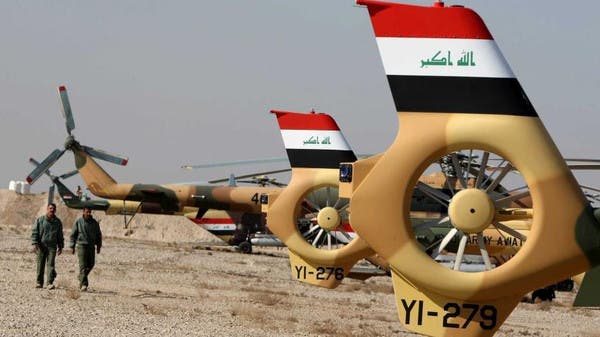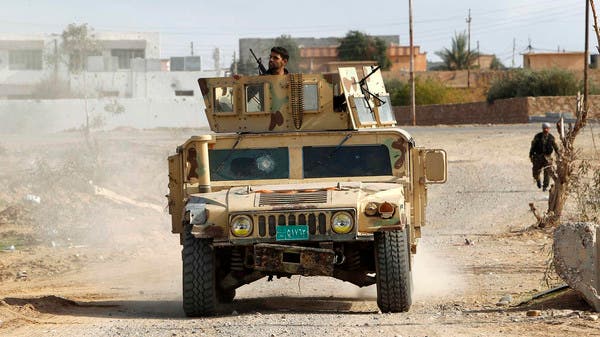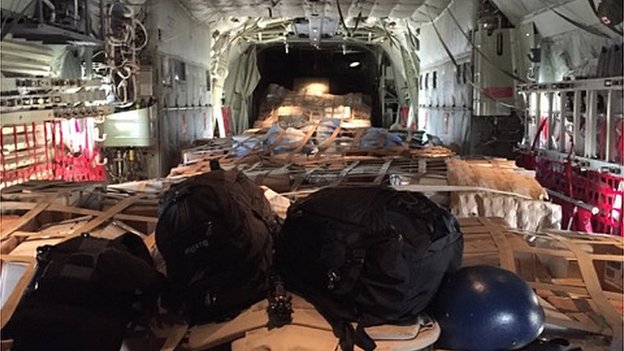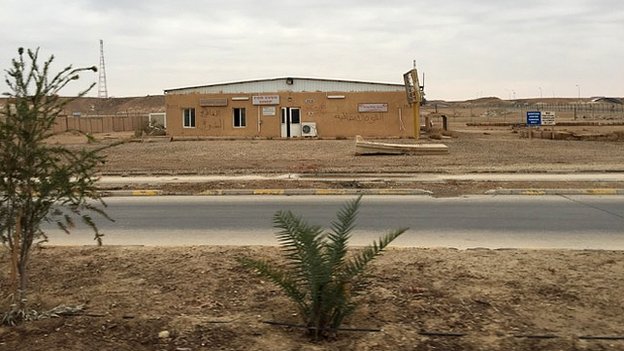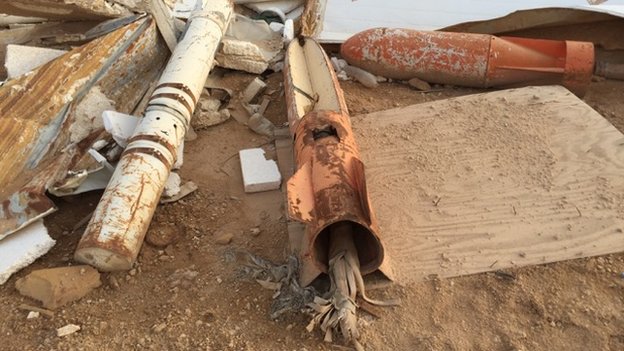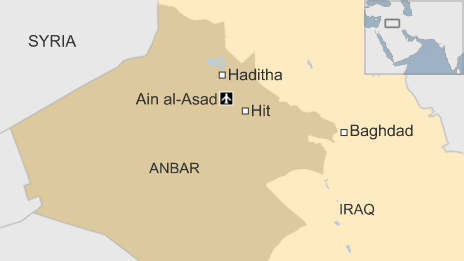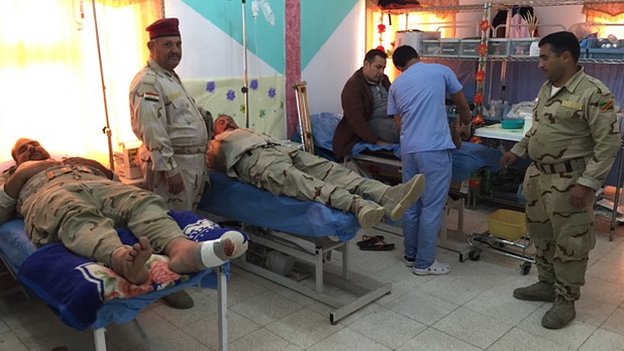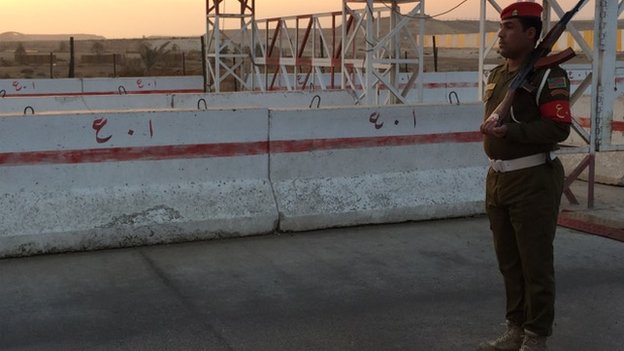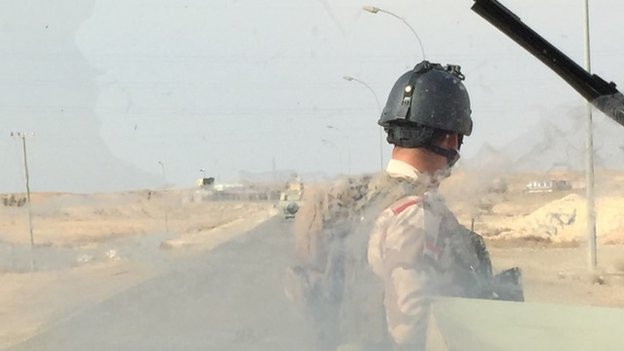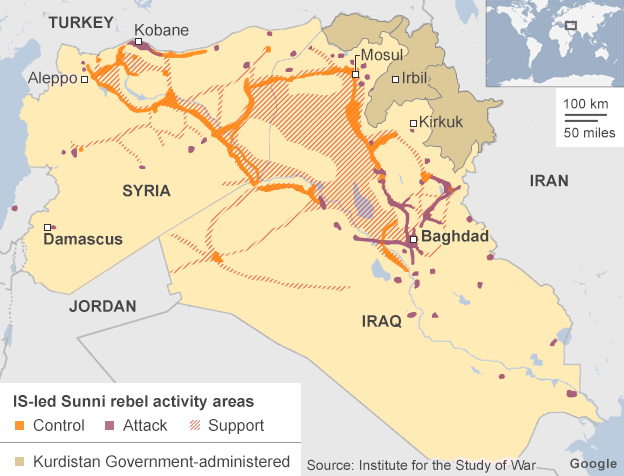Scorpion
THINK TANK: SENIOR
ISIS’ oil wealth: U.S., allies work to stem its growth
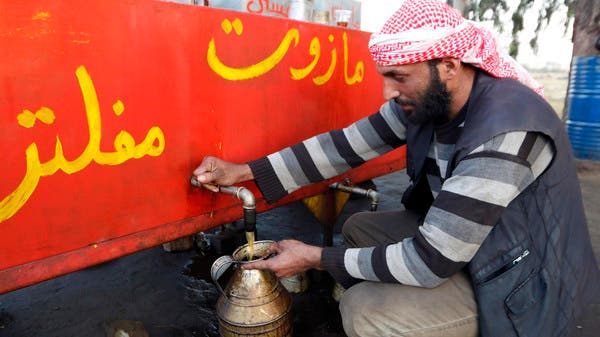
The self-proclaimed Islamic State of Iraq and Syria (ISIS) is thought to be the wealthiest terror group in history. While exacting this claim is difficult, ISIS’ overtake of key oil fields and refineries in Iraq and Syria among their other criminal exploits have left them with substantial wealth. Stopping the terror network by suffocating its financial strength has been the latest focus of the United States and its allies. While the effort to target ISIS territory (including oil fields) via airstrikes has proven to be successful, it does not address the sophisticated and long-standing oil smuggling routes and networks that ISIS has discovered and taken advantage of.
In a testimony before the U.S. House Committee on Financial Services this month, U.S. Undersecretary for Terrorism and Financial Intelligence David Cohen said that the United States is paying particular attention to bringing down ISIS financial security, with regard to its sales of oil, which he and others estimate can amount to about $1 million a day from oil and refined product sales alone. What’s problematic is that ISIS has taken advantage of long-maintained smuggling routes, largely positioned in the south of Turkey. Reports show that the oil is mostly going to buyers in Turkey, Iran and Jordan, aside from local buyers within ISIS-controlled areas.
“Our best understanding is that ISIL has tapped into a long-standing and deeply rooted black market connecting traders in and around the area. After extracting the oil, ISIL refines some of it in makeshift facilities and then sells some of the refined product, as well as unrefined oil, to smugglers and a variety of middlemen who, in turn, transport it outside of ISIL’s strongholds,” Cohen said in his testimony.
Not only has ISIS linked up to pre-existing black market oil routes, but they have also capitalized on skilled people who have been marginalized by political changes, economic instability and otherwise preoccupied governments. ISIS has been able to run and continue to extract and sell oil from the overtaken fields and refineries, especially in Iraq, without much effort because they are not re-staffing these productions. The engineers, employees and staff in these refineries are mostly people who already worked there, or were brought in by ISIS, but were technicians under Saddam Hussein’s ousted Baath Party, said Dr. Matthew Levitt, a counterterror expert and director at The Washington Institute for Near East Policy in Washington, DC.
ISIS is “impressing upon people who have been working at these facilities and it’s in their best interest to continue working at these facilities, so people do… even without having to be threatened, people want to work in the facilities because they” still need a job and a way to get food on the table for their families, Levitt said in an interview with Al Arabiya. The instability that has roiled both Iraq and Syria respectively, have both allowed ISIS to occupy key territories, as well as continue to have market sales of their stolen oil. Often, ISIS is governing in areas where the Iraqi government is not equipped to combat them, whether it’s because of political in-fighting or because of a deteriorated intelligence sector and army.
ISIS now controls smuggling routes to Jordan through Anbar province, to Iran through Kurdistan, and to Turkey through Mosul and the porous southern Turkish border, reports show.
In Iraq alone, ISIS has taken oil from Qayyarah oil field by Mosul, Ajil and Hamrin fields by Tikrit and Qoshtapa by Erbil.Reports estimate that by the end of June of 2014, 20,000 barrels of oil had been smuggled from Ajil and was traded at $25 to $60 per barrel, where it would typically sell for around $100 a barrel. The trading and selling price of ISIS oil is well below market price, making it extremely tempting for buyers, while still bringing in enough money to comfortably finance the terror group.
It is precarious that the largest hub for transporting ISIS oil is found in southern Turkey, the New York Times reported. while lawmakers in Istanbul are one of the greatest allies to the United States in the fight against ISIS.
However, the reality of cutting off the smuggling routes in Turkey’s south is not simple. The illicit sales of oil by ISIS are not all “above board” or official, Levitt said. The terror group has taken advantage of corruption and also provides a temporary answer to high oil prices to the people in the regions.
Since the smuggled oil is providing a cheaper option for oil for the people in the area, the burden of alleviating high oil prices is then shifted from the already encumbered Turkish government, which is cracking under the crush of refugees from the conflicts in Iraq and Syria along with their own financial issues. For the Turkish government to crack down on the oil routes in a significant manner cannot be accomplished “overnight,” Levitt said. “If they completely shut down the smuggling routes before they put in place alternative sources of gasoline or lower the prices, they’re going to have riots on their hands,” he added. So, ISIS is able to have a continued buyer stream for their stolen oil mainly because “most of these people either don’t know or they just don’t care” where their discounted oil comes from, Levitt said.
The United States’ decision to target ISIS controlled areas with sustained airstrikes has made significant impact on the groups’ oil sales and wealth. Not only do strikes hurt ISIS’ ability to move from location to location, but they also hurt the actual amount of oil they are able to sell. Some estimates say that airstrikes have curbed ISIS’ oil profit by two-thirds—leaving them still with more than enough to function, but slowing its growth nonetheless. Most notably however, is the move to sanction those that are supporting or facilitating the sales of this illicit oil. The United States is doing this both publically and privately, with their partners in the region.
“It is true, of course, that ISIL’s oil moves in illicit networks that are largely outside the formal economy, where individuals are less vulnerable to financial pressure,” Cohen said in his testimony. “The middlemen, traders, refiners, transport companies, and anyone else that handles ISIL’s oil or refined product should know that we are hard at work identifying them, and that we have tools at hand to stop them. We not only can cut them off from the U.S. financial system and freeze their assets, but we can also make it very difficult for them to find a bank anywhere that will touch their money or process their transactions. In combating ISIL’s fundraising through oil sales, we will leverage the well-established reluctance of banks around the world to facilitate the financing of terrorism,” he added.
Along with their official efforts to sanction those involved with the oil trade, the United States is also quietly pressuring their allies to make their own efforts to stop the flow and sales of ISIS controlled oil to buyers in their respective countries. There are no hard figures that show the success rate of any of these efforts; however, the shift in focus on ISIS’ financing is heartening for many counterterrorism experts. There are many moving parts that are feeding the terror group’s seeming success, but the United States and their allies seem committed to the idea that their efforts will slow the group and eventually bring them to their knees.

The self-proclaimed Islamic State of Iraq and Syria (ISIS) is thought to be the wealthiest terror group in history. While exacting this claim is difficult, ISIS’ overtake of key oil fields and refineries in Iraq and Syria among their other criminal exploits have left them with substantial wealth. Stopping the terror network by suffocating its financial strength has been the latest focus of the United States and its allies. While the effort to target ISIS territory (including oil fields) via airstrikes has proven to be successful, it does not address the sophisticated and long-standing oil smuggling routes and networks that ISIS has discovered and taken advantage of.
In a testimony before the U.S. House Committee on Financial Services this month, U.S. Undersecretary for Terrorism and Financial Intelligence David Cohen said that the United States is paying particular attention to bringing down ISIS financial security, with regard to its sales of oil, which he and others estimate can amount to about $1 million a day from oil and refined product sales alone. What’s problematic is that ISIS has taken advantage of long-maintained smuggling routes, largely positioned in the south of Turkey. Reports show that the oil is mostly going to buyers in Turkey, Iran and Jordan, aside from local buyers within ISIS-controlled areas.
“Our best understanding is that ISIL has tapped into a long-standing and deeply rooted black market connecting traders in and around the area. After extracting the oil, ISIL refines some of it in makeshift facilities and then sells some of the refined product, as well as unrefined oil, to smugglers and a variety of middlemen who, in turn, transport it outside of ISIL’s strongholds,” Cohen said in his testimony.
Not only has ISIS linked up to pre-existing black market oil routes, but they have also capitalized on skilled people who have been marginalized by political changes, economic instability and otherwise preoccupied governments. ISIS has been able to run and continue to extract and sell oil from the overtaken fields and refineries, especially in Iraq, without much effort because they are not re-staffing these productions. The engineers, employees and staff in these refineries are mostly people who already worked there, or were brought in by ISIS, but were technicians under Saddam Hussein’s ousted Baath Party, said Dr. Matthew Levitt, a counterterror expert and director at The Washington Institute for Near East Policy in Washington, DC.
ISIS is “impressing upon people who have been working at these facilities and it’s in their best interest to continue working at these facilities, so people do… even without having to be threatened, people want to work in the facilities because they” still need a job and a way to get food on the table for their families, Levitt said in an interview with Al Arabiya. The instability that has roiled both Iraq and Syria respectively, have both allowed ISIS to occupy key territories, as well as continue to have market sales of their stolen oil. Often, ISIS is governing in areas where the Iraqi government is not equipped to combat them, whether it’s because of political in-fighting or because of a deteriorated intelligence sector and army.
ISIS now controls smuggling routes to Jordan through Anbar province, to Iran through Kurdistan, and to Turkey through Mosul and the porous southern Turkish border, reports show.
In Iraq alone, ISIS has taken oil from Qayyarah oil field by Mosul, Ajil and Hamrin fields by Tikrit and Qoshtapa by Erbil.Reports estimate that by the end of June of 2014, 20,000 barrels of oil had been smuggled from Ajil and was traded at $25 to $60 per barrel, where it would typically sell for around $100 a barrel. The trading and selling price of ISIS oil is well below market price, making it extremely tempting for buyers, while still bringing in enough money to comfortably finance the terror group.
It is precarious that the largest hub for transporting ISIS oil is found in southern Turkey, the New York Times reported. while lawmakers in Istanbul are one of the greatest allies to the United States in the fight against ISIS.
However, the reality of cutting off the smuggling routes in Turkey’s south is not simple. The illicit sales of oil by ISIS are not all “above board” or official, Levitt said. The terror group has taken advantage of corruption and also provides a temporary answer to high oil prices to the people in the regions.
Since the smuggled oil is providing a cheaper option for oil for the people in the area, the burden of alleviating high oil prices is then shifted from the already encumbered Turkish government, which is cracking under the crush of refugees from the conflicts in Iraq and Syria along with their own financial issues. For the Turkish government to crack down on the oil routes in a significant manner cannot be accomplished “overnight,” Levitt said. “If they completely shut down the smuggling routes before they put in place alternative sources of gasoline or lower the prices, they’re going to have riots on their hands,” he added. So, ISIS is able to have a continued buyer stream for their stolen oil mainly because “most of these people either don’t know or they just don’t care” where their discounted oil comes from, Levitt said.
The United States’ decision to target ISIS controlled areas with sustained airstrikes has made significant impact on the groups’ oil sales and wealth. Not only do strikes hurt ISIS’ ability to move from location to location, but they also hurt the actual amount of oil they are able to sell. Some estimates say that airstrikes have curbed ISIS’ oil profit by two-thirds—leaving them still with more than enough to function, but slowing its growth nonetheless. Most notably however, is the move to sanction those that are supporting or facilitating the sales of this illicit oil. The United States is doing this both publically and privately, with their partners in the region.
“It is true, of course, that ISIL’s oil moves in illicit networks that are largely outside the formal economy, where individuals are less vulnerable to financial pressure,” Cohen said in his testimony. “The middlemen, traders, refiners, transport companies, and anyone else that handles ISIL’s oil or refined product should know that we are hard at work identifying them, and that we have tools at hand to stop them. We not only can cut them off from the U.S. financial system and freeze their assets, but we can also make it very difficult for them to find a bank anywhere that will touch their money or process their transactions. In combating ISIL’s fundraising through oil sales, we will leverage the well-established reluctance of banks around the world to facilitate the financing of terrorism,” he added.
Along with their official efforts to sanction those involved with the oil trade, the United States is also quietly pressuring their allies to make their own efforts to stop the flow and sales of ISIS controlled oil to buyers in their respective countries. There are no hard figures that show the success rate of any of these efforts; however, the shift in focus on ISIS’ financing is heartening for many counterterrorism experts. There are many moving parts that are feeding the terror group’s seeming success, but the United States and their allies seem committed to the idea that their efforts will slow the group and eventually bring them to their knees.


